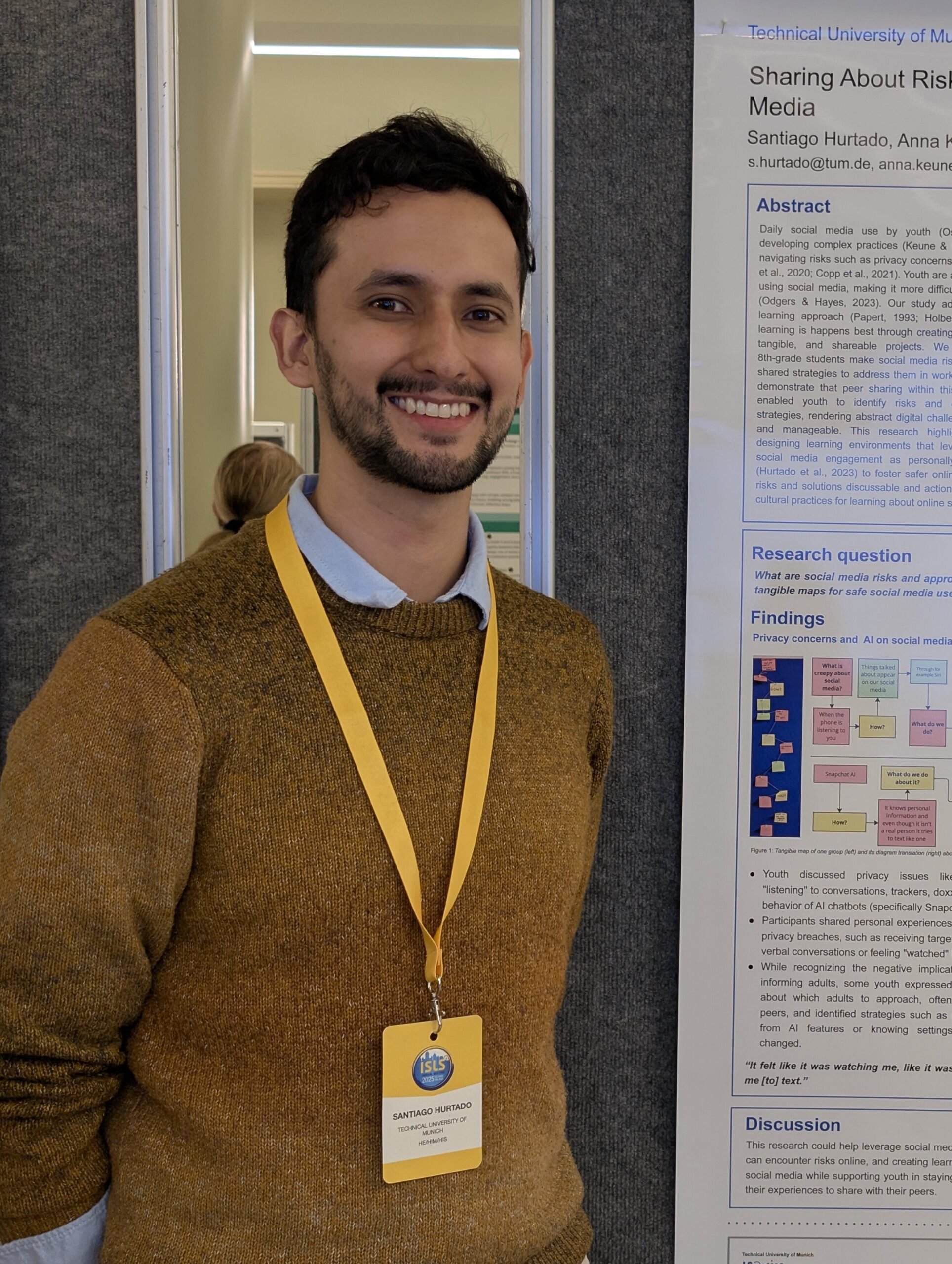


September 19, 2025
In this second episode of Research Spotligh, Santiago Hurtado highlights the importance of understanding how young people engage with social media and AI. Supporting young people spot risks and ethical concerns that arise from their touchpoints with these systems is an indispensable step to assist them develop practical strategies for thoughtful use. Listen to Santiago’s insights on educational technologies here and Spotify.

Risks are similar across social media and AI. Supporting young people in learning about them prepares them for using such everyday technologies critically
Santiago Hurtado
1. Can you briefly introduce yourself and your current role at the TUM?
Hi, I’m a doctorate student working with Professor Anna Keune at the Professorship for Learning Sciences and Educational Design Technologies. I am currently in my third year and hope to finish my doctorate journey by the end of next year.
2. What is your primary area of research, and what initially drew you to this field?
My research focuses in two areas. First, youth and social media risks, and second, ethics of artificial intelligence. I was drawn to these because I was interested in the learning opportunities present within risks and ethics of digital technologies. My research has allowed me to see that risks and ethics is similar across social media and AI, and supporting young people in learning about them prepares them for using such everyday technologies critically. This extends to other educational technologies, where focusing on possible risks and ethical concerns can be a pathway towards safer use.
3. What are risks and ethical concerns that arise from the use of digital technologies in educational settings?
Several frameworks have been developed since the release of ChatGPT that provide guidelines for possible risks and ethical concerns. Most research has focused on relevant aspects such as data privacy, transparency or biases. Yet working with young people has provided insights into other complex aspects such as creativity, autonomy or young people’s relationship with such digital technologies where they express guilt or anxiety about using them because of the way these technologies are talked about, for example time wasting or cheating.
4. What role does your research play in addressing these challenges to ensure learning opportunities for young people from the use of educational technologies?
My research has focused on developing tangible and digital learning materials and activities that aim to make the processes in which young people engage with such technologies, that is AI and social media, more transparent and feelable. This has supported young people in recognizing ethical concerns and developed strategies and awareness when using them.
5. Some of your previous work was also on Sound and Music for STEM education, do you have a favourite musician or genre you enjoy listening to?
This is an interesting question. I connect music with people, and these have shaped my tastes and genres I enjoy. My parents with salsa, merengue and boleros, my siblings with pop, rock en español, reggaeton and reggae, and my friends with metal, techno, classical music and rock. Of all of those, Dream Theater has been the most constant, a progressive metal band which I had the pleasure of seeing live twice since moving to Germany.
https://scholar.google.com/citations?user=cq3eRvoAAAAJ&hl=en